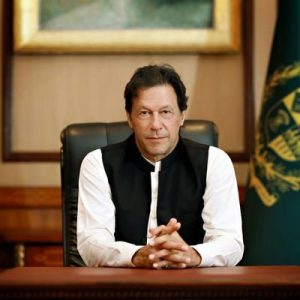By Umamah Bakharia
Pakistan’s government has banned a planned protest march that was called by former Prime Minister Imran Khan calling for elections after he was ousted by a vote of no-confidence in parliament in April.
On Tuesday, the ban was announced by Interior Minister Rana Sanaullah just hours after a policeman was shot and killed during a clash between Khan’s supporters and authorities trying to prevent the march.

Director general of the institute of policy studies, Khaled Rahman speaks to Radio Islam International live from Pakistan on the country’s political climate since Khan was removed as PM.
“When Imran Khan came into power in 2018, he gave a hope that he is going to bring change in the political culture, in the governance structure and governance performance will be improved but he could not deliver on those promises,” says Rahman.
However, Rahman claims that Khan was losing support when the vote of no-confidence motion happened and thus changed the storyline to Khan being a victim of a US conspiracy against him.
“Instead of his performance during the three and a half years, now the issues have been changed and perhaps one should give credit to Imran Khan that he has been successful in changing the whole issue,” says Rahman.
Due to the political instability in the country, the International Monetary Fund (IMF) says they will only release the next instalment of financial aid in Pakistan if the government removes the subsidies related to the petrol price.
Rahman says the current Pakistan government has not been able to make major decisions since Khan left office.
He says: “Imran Khan has been successful in mobilising again [amongst supporters].”







0 Comments